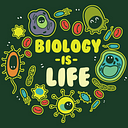Knowing the biological links of depression
Biology student Steven Rindner discusses the biological links of depression in today’s article. He believes that science can explain why some person experiences the blues, either temporarily or like a lifelong illness.
The role of genetics
Genetics figure prominently in terms of illnesses related to behavior, explains Steven Rindner. For example, studies show that someone with a first-degree relative, such as a parent or a sibling diagnosed with depression, is three times more likely to experience the same. Researchers theorize that it is probably because of the interplay between genes and other factors like environment and trauma that determine someone’s susceptibility to depression.
Genetic variations
Scientific researchers look for genetic variants or changes in our genes as the probable link to depression. This is based on the idea that certain features such as eye color result from a combination of genes from our parents and some altering agent that, in turn, affects melanin production. However, Steven Rindner notes that research has not yet determined the full implication of genetic variations with conditions like depression.
Serotonin and depression gene
There are ongoing studies that suggest the link between serotonin levels with depression, says Steven Rindner. Serotonin is commonly known as the feel-good chemical that allows our neurons to communicate. On the other hand, a so-called depression gene, which was identified in a study by British researchers among 40% out of 800 families with recurrent depression, is believed to be a major cause, in addition to other factors like environment.
Treatment
While the biological links of depression are still being studied, Steven Rindner notes that it can be treated with the following: meditation, psychotherapy, and cognitive-behavioral therapy (CBT). Furthermore, it was pointed out that genes may still influence which treatment will work. But, in this regard, a doctor is best to determine that.
